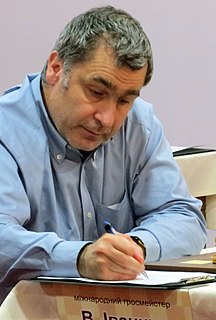A Quote by Gerald Edelman
The computer is not, in our opinion, a good model of the mind, but it is as the trumpet is to the orchestra - you really need it. And so, we have very massive simulations in computers because the problem is, of course, very complex.
Related Quotes
In our age of individualism, we see computers as ways through which we can express our individuality. But the truth is that the computers are really good at spotting the very opposite. The computers can see how similar we are, and they then have the ability to agglomerate us together into groups that have the same behaviours.
To really be known and really let someone else be known is very vulnerable. It's a weird thing. Just being an actress in Hollywood is very vulnerable. To let all these other people decide whether you're really of value or not, you have to really be strong to know that, of course, they have a right to their opinion, but their opinion doesn't matter as far as yourself.
It's a very special generation, because during our careers the computer entered chess. So we know how to play without computers, which is also important. We can analyse without computers. I am not saying that younger players cannot do this, but we are more in the habit of doing this. That's important to improve your chess understanding.
I was really looking at computers as a way to understand the mind. But at M.I.T., my mind was blown by having a whole computer to yourself as long as you liked.I felt a surge of intellectual power through access to this computer, and I started thinking about what this could mean for kids and the way they learn. That's when we developed the computer programming language for kids, Logo.
We have to do something about the cartels. I did talk to [Enrique Peña Nieto] about it. I want to help him with it. I think he's a very good man. We have a very good relationship.He seemed very willing to get help from us because he has got a problem, and it's a real problem for us. Don't forget those cartels are operating in our country. And they're poisoning the youth of our country.
I have a son. He's 10 years old. He has computers. He is so good with these computers, it's unbelievable. The security aspect of cyber is very, very tough. And maybe it's hardly doable.But I will say, we are not doing the job we should be doing. But that's true throughout our whole governmental society.
Every computer divides itself into its hardware and its software, the machine host to its algorithm, the human being to his mind. It is hardly surprising that men and women have done what computers now do long before computers could do anything at all. The dissociation between mind and matter in men and machines is very striking; it suggests that almost any stable and reliable organization of material objects can execute an algorithm and so come to command some form of intelligence.
As we build systems that are more and more complex, we make more and more subtle but very high-impact mistakes. As we use computers for more things and as we build more complex systems, this problem of unreliability and insecurity is actually getting worse, with no real sign of abating anytime soon.
Never imitate. The mind is an imitator, because imitation is very easy. To be someone is very difficult. To become someone is very easy - all that you need is to be a hypocrite, which is not much of a problem. Deep down you remain the same, but on the surface you go on painting yourself according to some image.


































